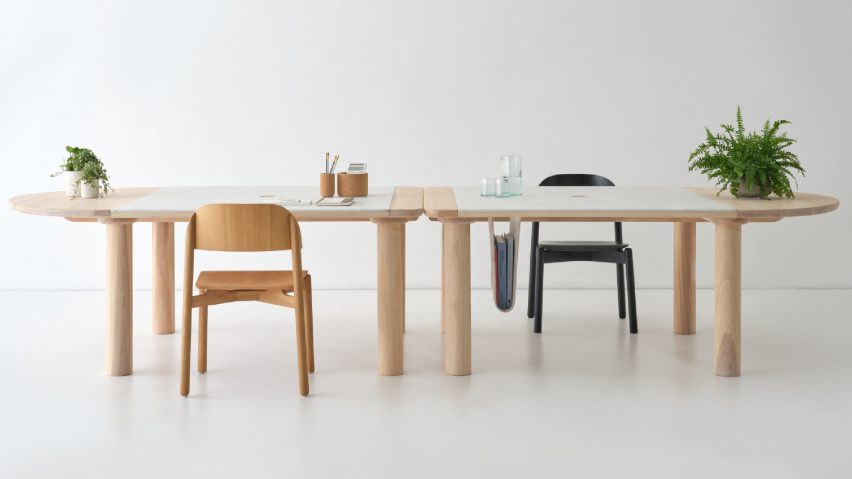
Dezeen Awards 2022 design public vote winners feature flat-knit climate-change infographics
After more than 11,000 votes, Dezeen readers have named projects by Another Country, Raw Color and Caterina Moretti as the winners of this year's Dezeen Awards public vote in the design categories.
Raw Color won for its data-embedded textiles, with other winners including Suri for its electric recyclable toothbrush and Ēter for its sensorial exhibition at the Design Museum in London.
Of the total 55,000 votes that were cast and verified across all categories, the design categories received over 11,000 verified votes.
Dezeen Awards 2022 public vote winners in the architecture and interiors categories were published earlier this week, the sustainability and media winners will be announced on Thursday and the studio winners on Friday.
Dezeen Awards winners unveiled in November
The public vote is separate from the main Dezeen Awards 2022 judging process, in which entries are assessed by our renowned panel of judges. We'll be revealing the Dezeen Awards 2022 winners ahead of the winners' party at the end of November.
To receive regular updates about Dezeen Awards, including this year's winners, subscribe to our newsletter or follow us on Instagram and LinkedIn.
Read on to see the public vote design category winners in this year's programme:
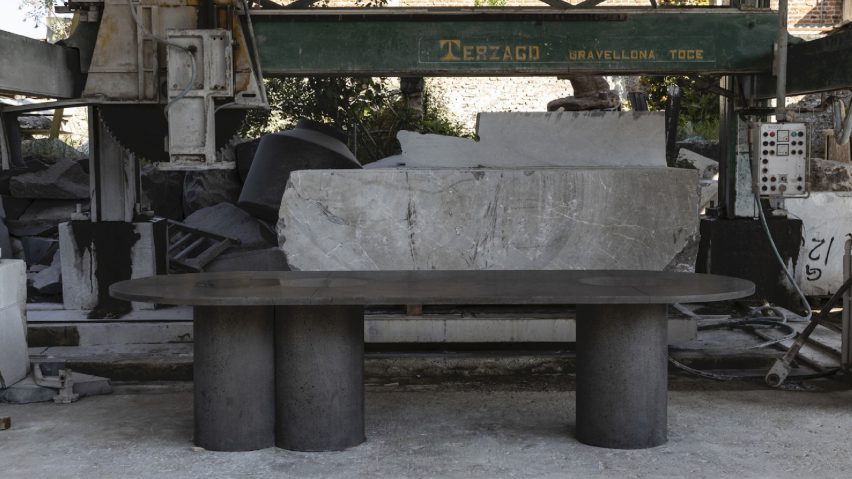
Furniture design
Petra by Caterina Moretti for Peca won furniture design of the year in the public vote with 29 per cent of the votes. The table is made entirely of carved volcanic stone with an oval top that features three polished stone discs, echoing the columns at the base.
The runners-up include Low Collection by EBBA Architects with 23 per cent, Intersection Table by Snøhetta with 19 per cent, ReFramed Bed System by Tim Rundle Studio Limited with 17 per cent and Mother and Child Cabinet by Adam & Arthur with 12 per cent.
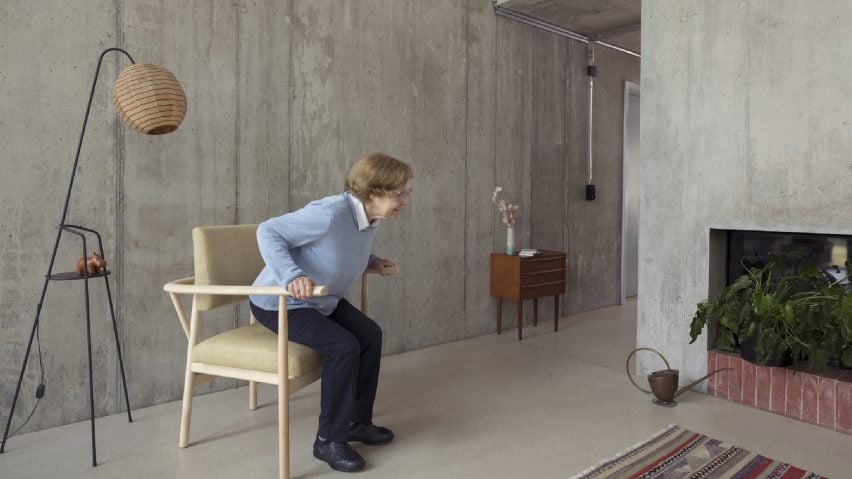
Seating design
Lotte is an armchair designed to meet the functional needs of users with different motor, cognitive and sensory abilities while trying to break away from stigmatising disability design. The chair by Sarah Hossli Product Design received 29 per cent of the public's votes, making it the winner of the seating design category.
Next in line was Boa Pouf by Sabine Marcelis for Hem with 25 per cent, Link & Loop by Sancal with 22 per cent, REX by Studio Ineke Hans for Circuform with 14 per cent and Collection 822 by TON with 20 per cent.
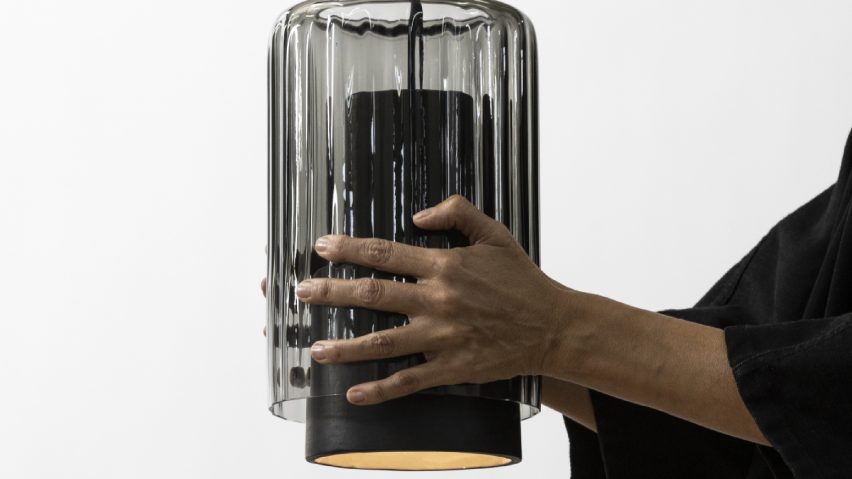
Lighting design
Barro Lamp by Caterina Moretti for Graypants celebrates pre-Hispanic traditions and Mexican design. The lamp, which features a cylindrical blown-glass dome, secured first place with 34 per cent of votes.
High Profile by MVRDV came in second place with 25 per cent, followed by Onu Series by Sabu Studio with 23 per cent, Mazha Lighting system 5.0 by Mario Tsai Studio with 10 per cent and finally Signals by Barber Osgerby with eight percent.
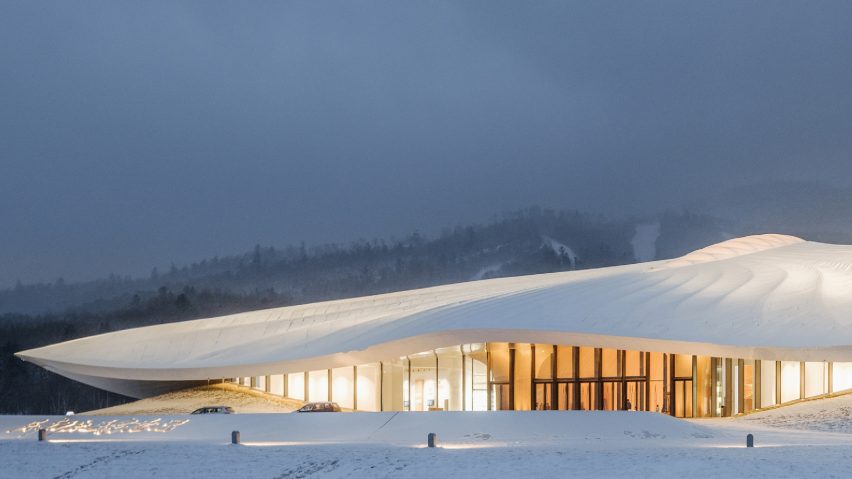
Architectural lighting design
Brandston Partnership's lighting for the MAD Architect-designed Yabuli China Entrepreneurs Forum won architectural lighting design of the year with 32 per cent of votes.
The runner-up was Theatre Royal Drury Lane by BDP with 24 per cent, followed by Sensasia Stories Spa Kempinski Hotel Mall of the Emirates by Studio N with 20 per cent, Unique Mount Emei Land of Dramas by Beijing Leuchte Lighting Design with 14 per cent and Illuminated River by Lifschutz Davidson Sandilands with nine per cent.
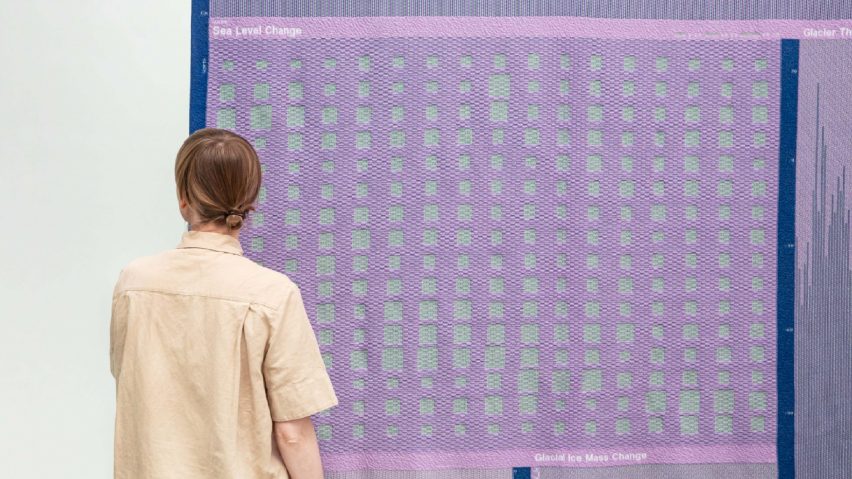
Homeware design
Temperature Textiles is a collection of knitted blankets, scarves and socks that aims to communicate climate-related data. The range designed by Dutch brand Raw Color was voted most popular by Dezeen readers with 30 per cent of votes.
In close pursuit was Oku by Kathleen Reilly with 27 per cent, Fat Collection by Tom Dixon for D Line with 16 per cent, Font Cutlery Set by Hop Design with 15 per cent and GOZ by Kengo Kuma & Associates for Gan with 12 per cent.
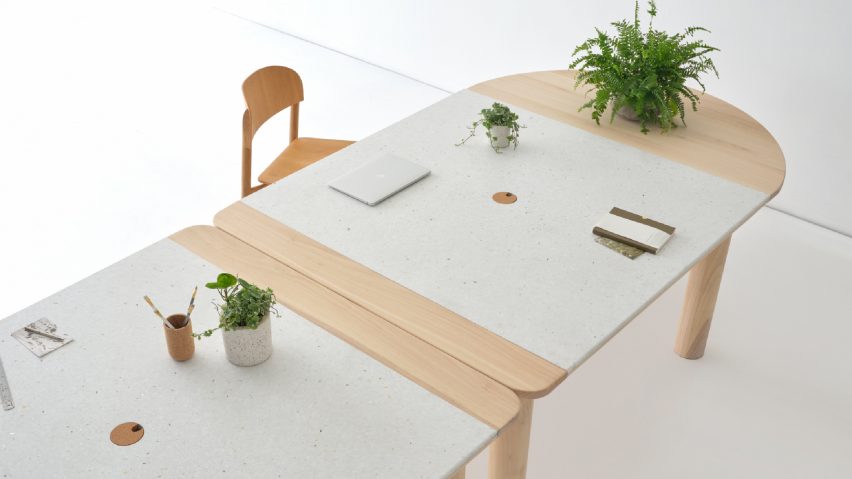
Workplace design
Another Country's table with soft, organic forms and tactile materials was named the winner in the workplace design category this year with 27 per cent of the votes. Work Series II features a recyclable terrazzo-style desktop surface flecked with metallic hints.
Next up was A Simple Machine by HeijltjesAkkaya with 25 per cent, HÅG Tion by Anderssen & Voll, Hunting & Narud and Big-Game for Flokk with 21 per cent, UWS Base by March Gut with 14 per cent and Series One Desk 27 by Avocor and Aruliden with 12 per cent.
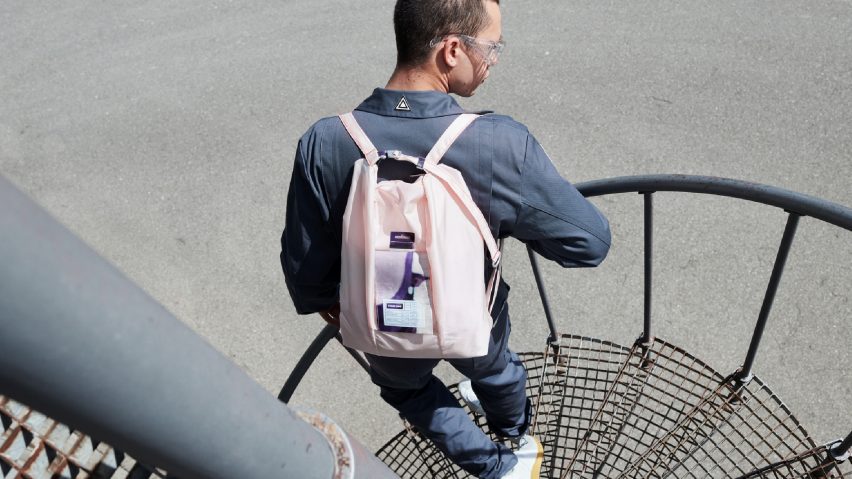
Wearable design
Voted most popular with 34 per cent in the wearable design category this year was F707 Stratos. Freitag Lab's bags are available in white, pale blue and light pink and are made from airbag material.
Tied in second with 18 per cent were Whoop 4.0 by Aruliden and Coffee Watch by Lilienthal Lifestyle, followed by Elvie Stride by Elvie with 16 per cent, and finally, Tenuto 2 by MysteryVibe with 14 per cent.
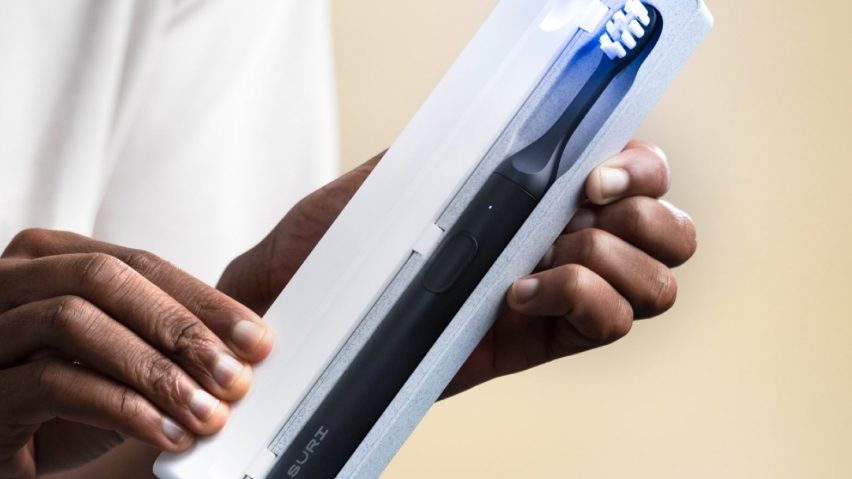
Product design
Suri by Suri won product design of the year, securing 45 per cent of votes. The electric toothbrush can be dismantled for repair and comes with a UV cleansing case as well as a magnetic wall mount charger.
Next in line was Wheeliy 2.0 by Quantum with 25 per cent, S/Rapide by Angell with 16 per cent, Carbonator 3 by Aarke with 10 per cent and Tempo Move by Level with five per cent.
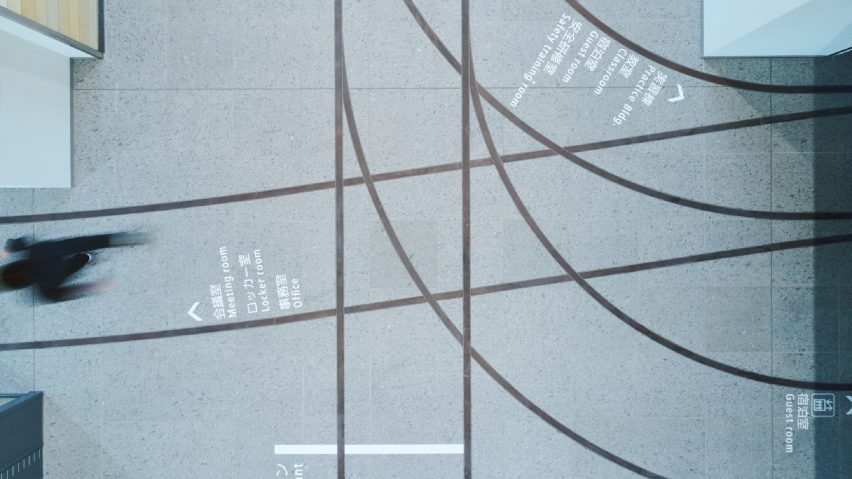
Graphic design
Totetsu Training Institute in Japan caught our readers' eyes, winning graphic design of the year with 32 per cent of votes. Motive used embedded train track rails in concrete floors to create a wayfinding system in the railway builder school.
The runner-up was Dutch Design Week by Studio Thonik with 24 per cent, Typotheque North American Syllabics by Typotheque with 19 per cent, Château Picoron by OlssønBarbieri with 13 per cent and finally M+ Museum of Visual Culture by Studio Thonik with 12 per cent.
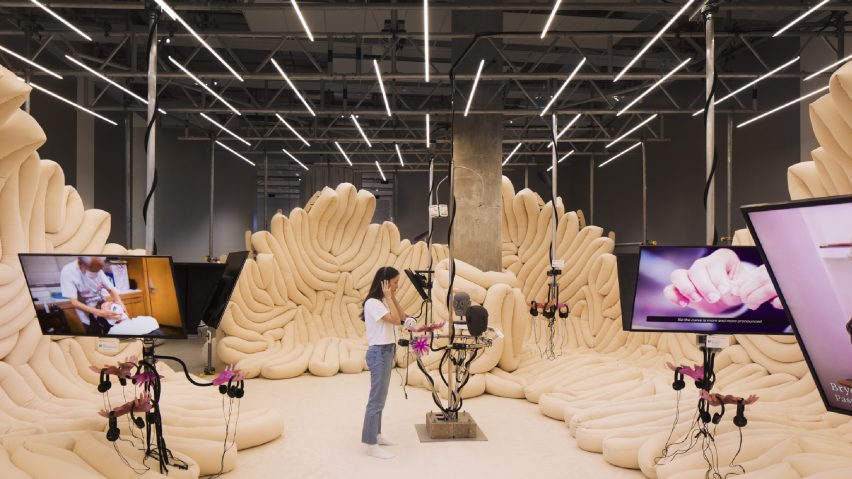
Exhibition design
The exhibition Weird Sensation Feels Good: The World of ASMR features a 100-square-metre movable arena, which can be dismantled and reassembled. The structure incorporates four types of plywood ribs, scaffold elements and tubular pillows that are sewn from raw fibre cotton terry.
The immersive exhibition by Ēter was named the exhibition design category winner with 28 per cent of votes.
Right behind was Ginza Ecological Map by Hakuten with 27 per cent, followed by Museum of the Future: Journey of the Pioneers by Atelier Brückner with 20 per cent, Groote Museum by Kossmanndejong with 15 per cent and Greenwood Rising: Black Wall Street History Center by Local Projects with 11 per cent.
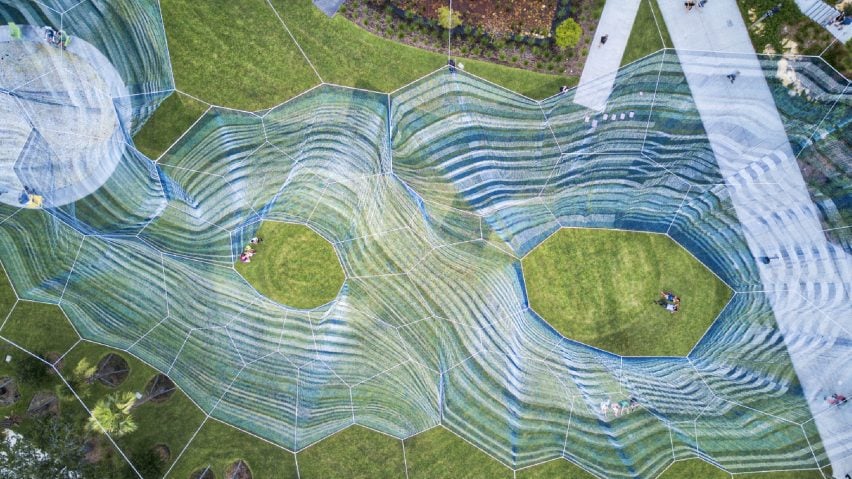
Installation design
Bending Arc is Janet Echelman's permanent sculpture in St Petersburg, USA. The sculpture made of lightweight fibre is composed of multiple arcs and covers 47,500 square feet.
The barnacle-like structure was voted installation design of the year by Dezeen readers with 30 per cent of votes.
Next up was Sinking House by Stride Treglown with 27 per cent, Qaammat by Konstantin Arkitekter and Studio Thonik tied in second with 15 per cent and finally, Grounds for Return by Willow with 13 per cent.

